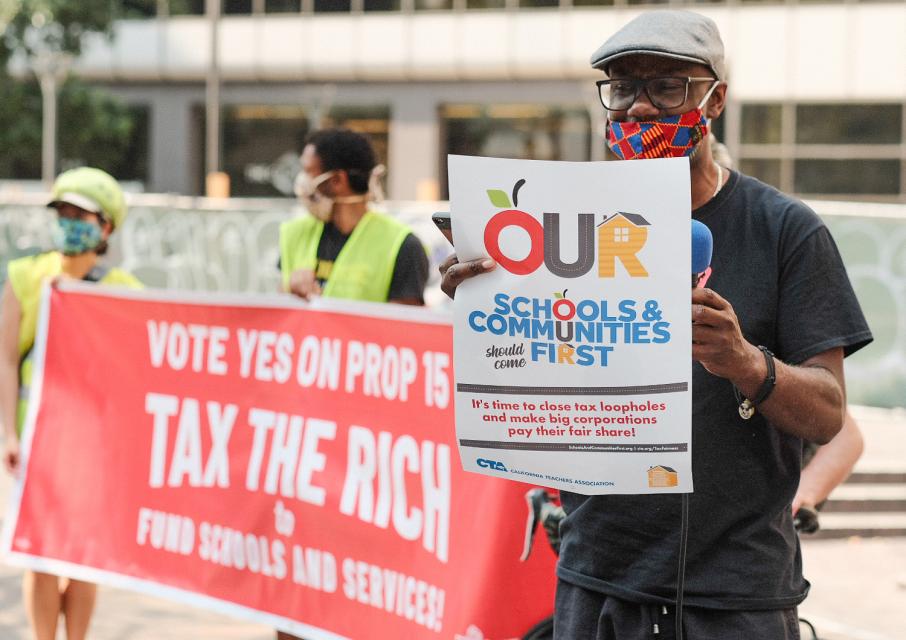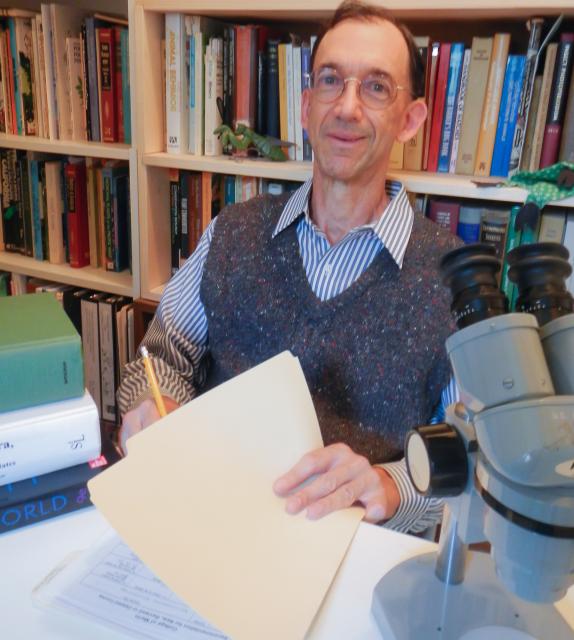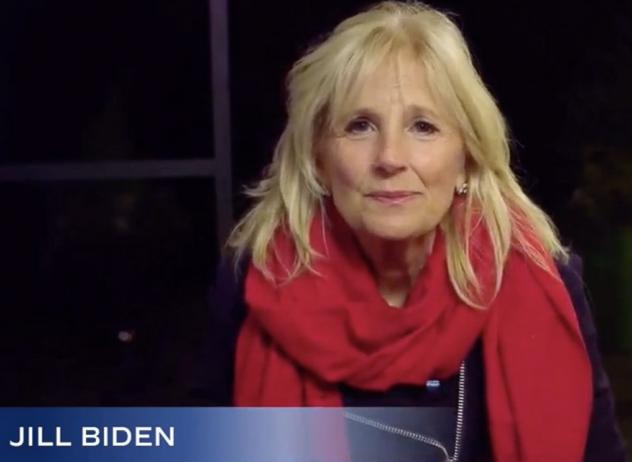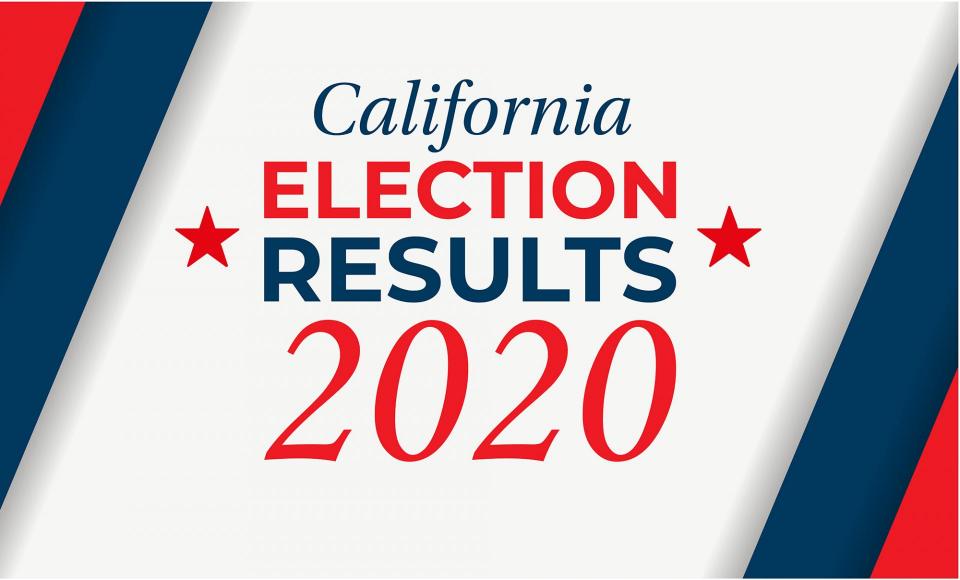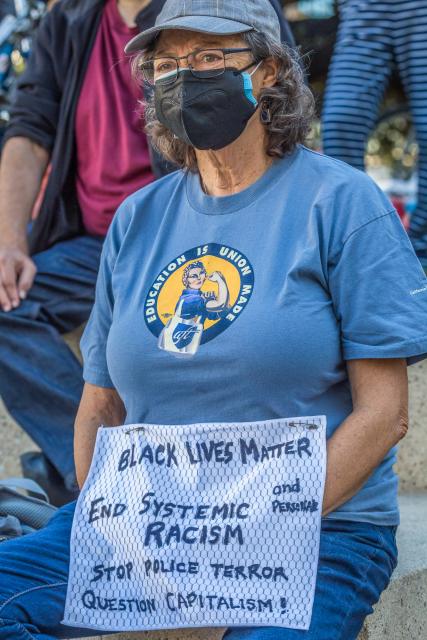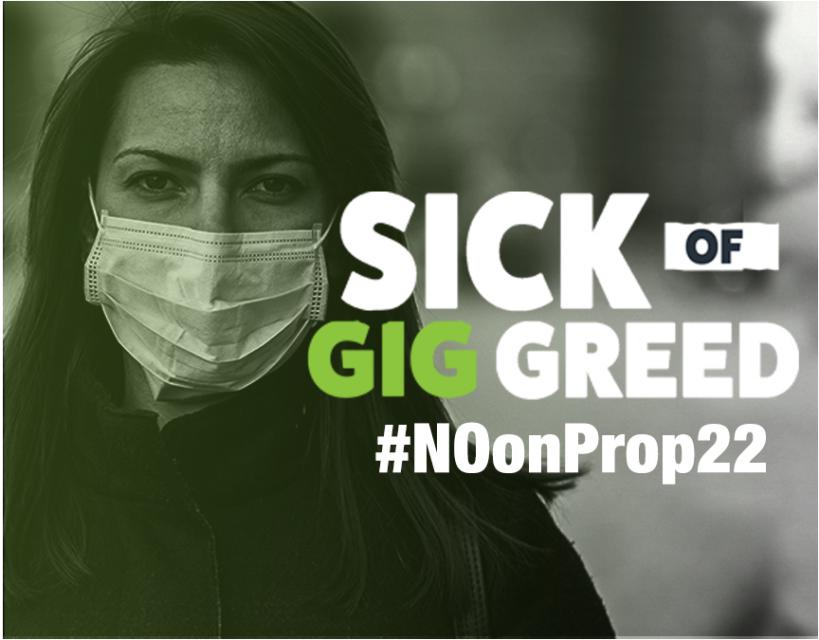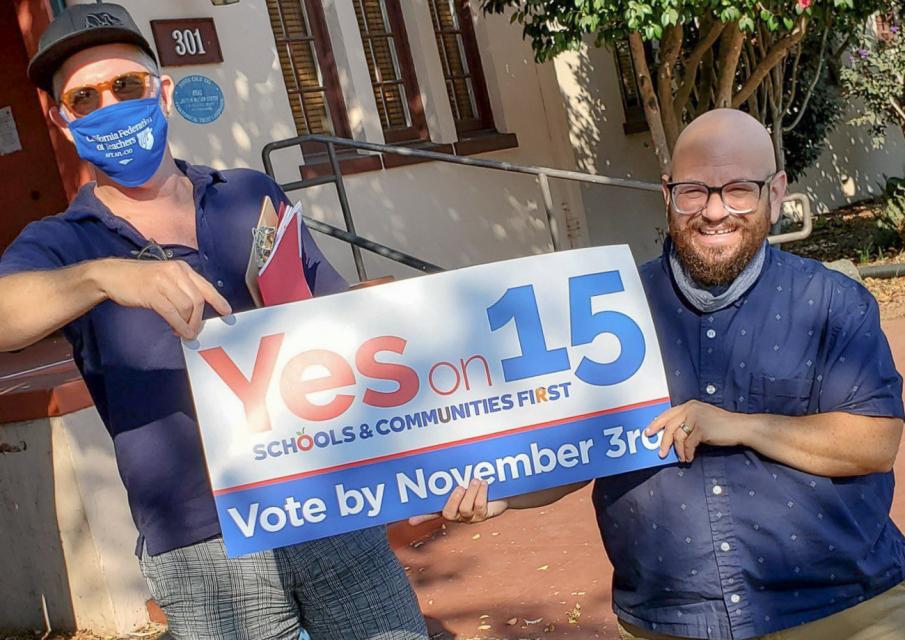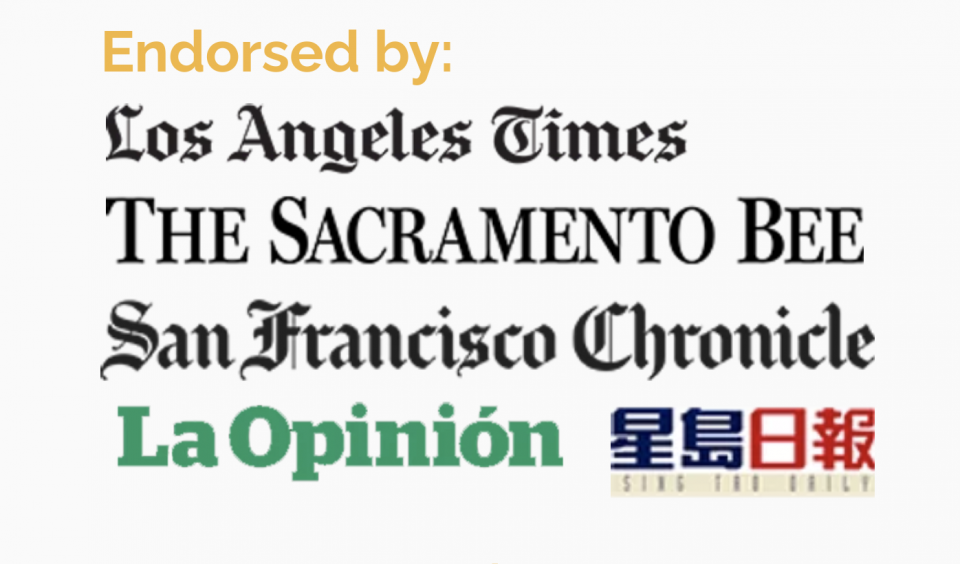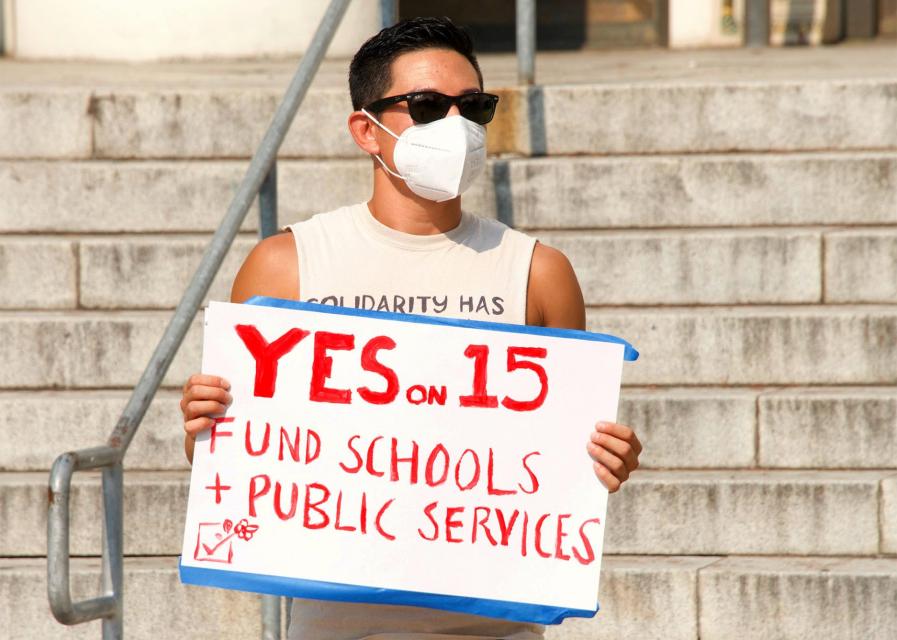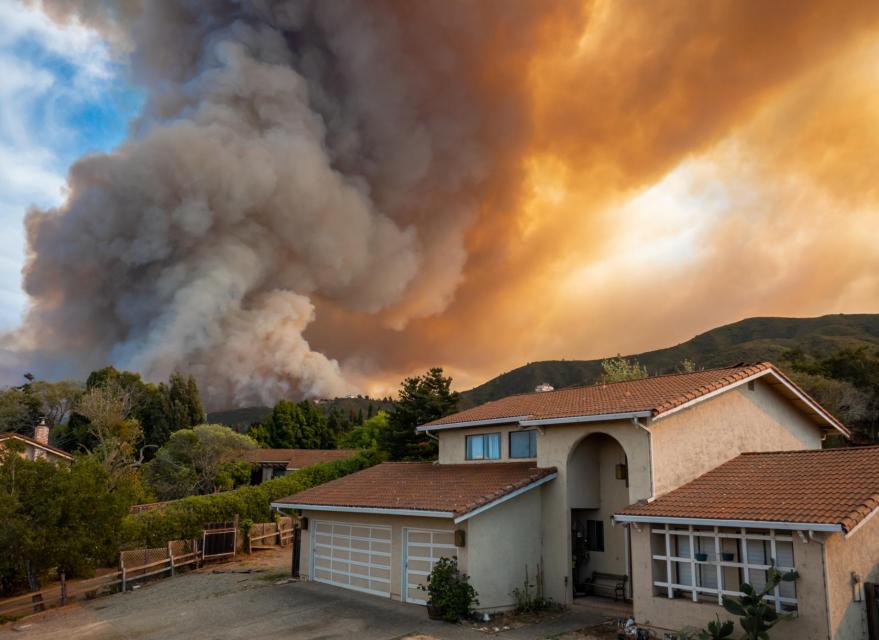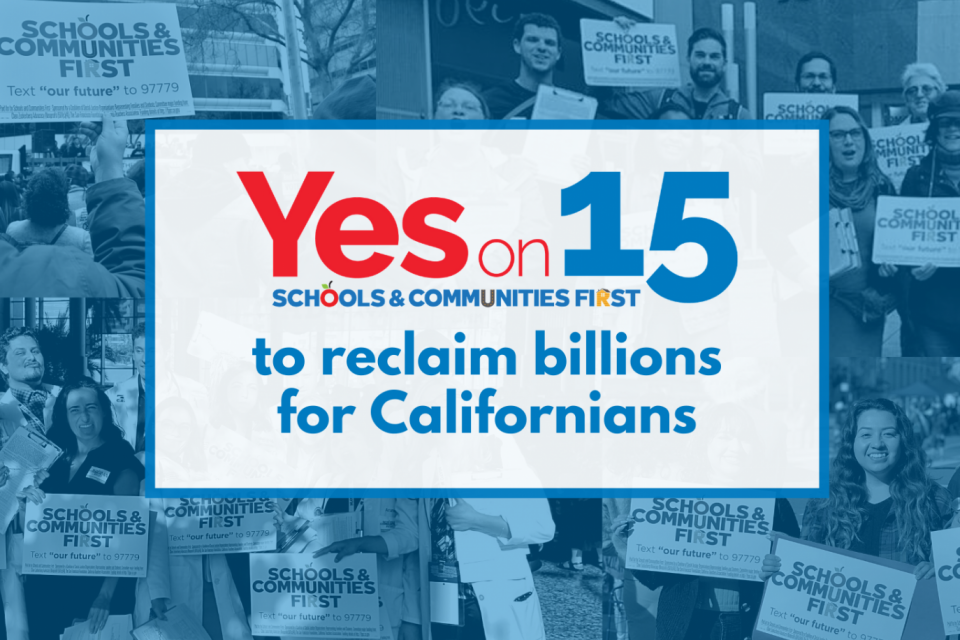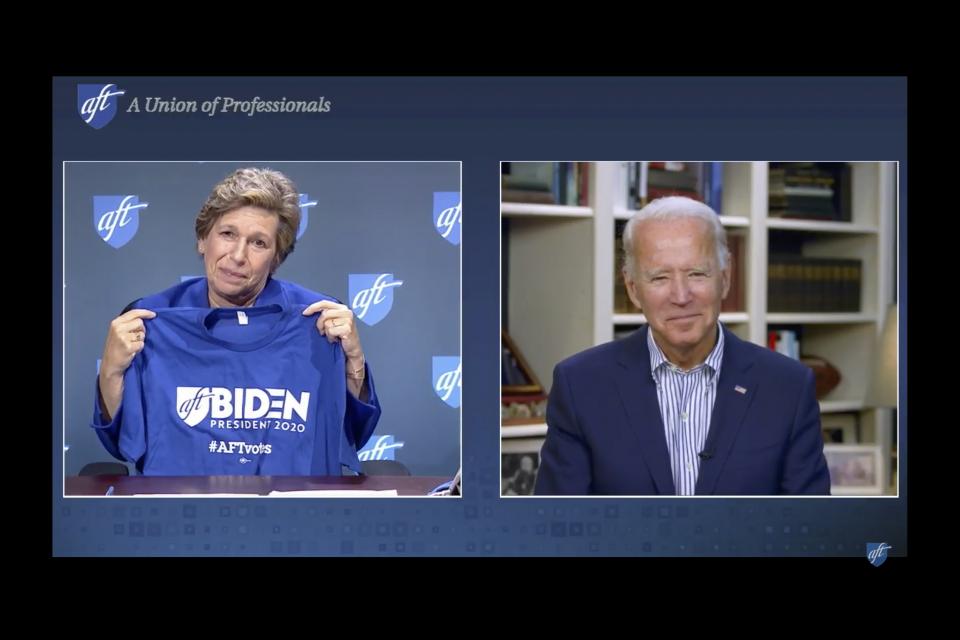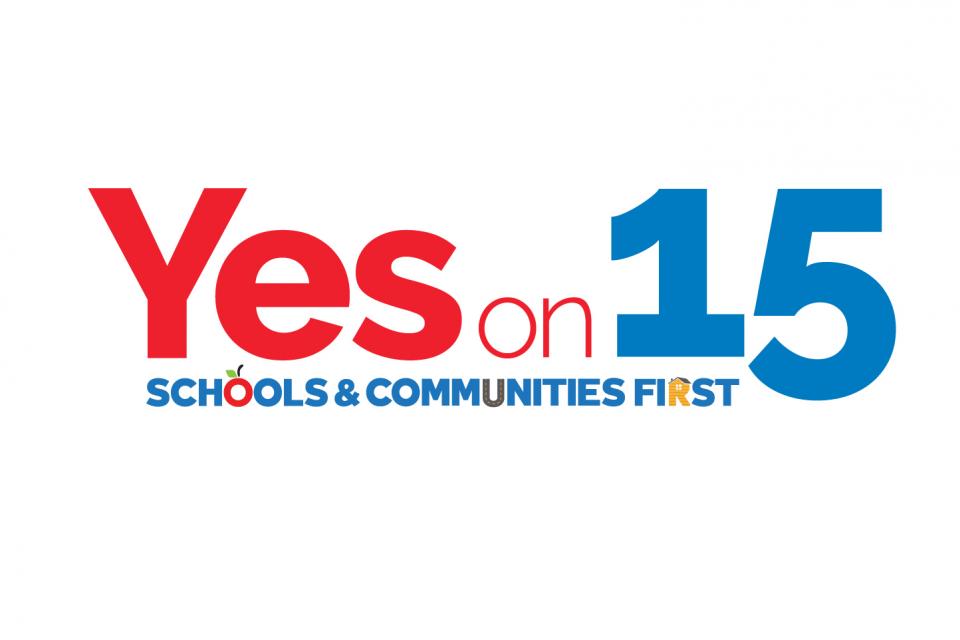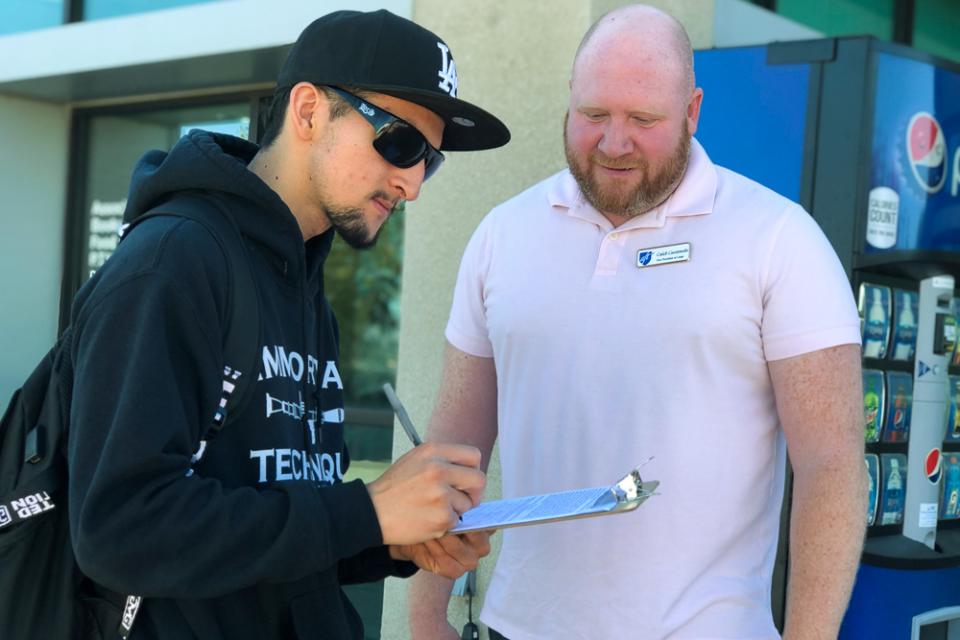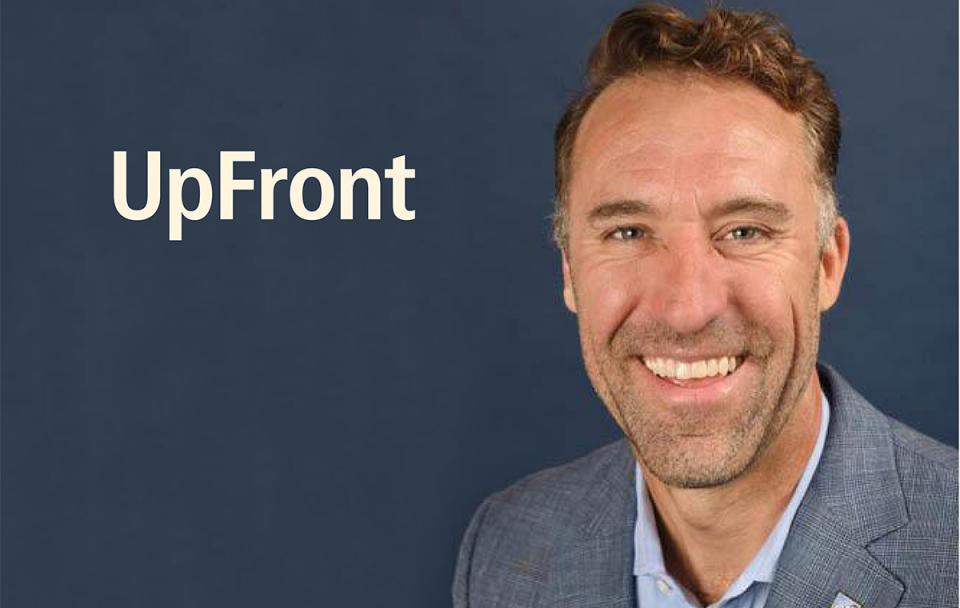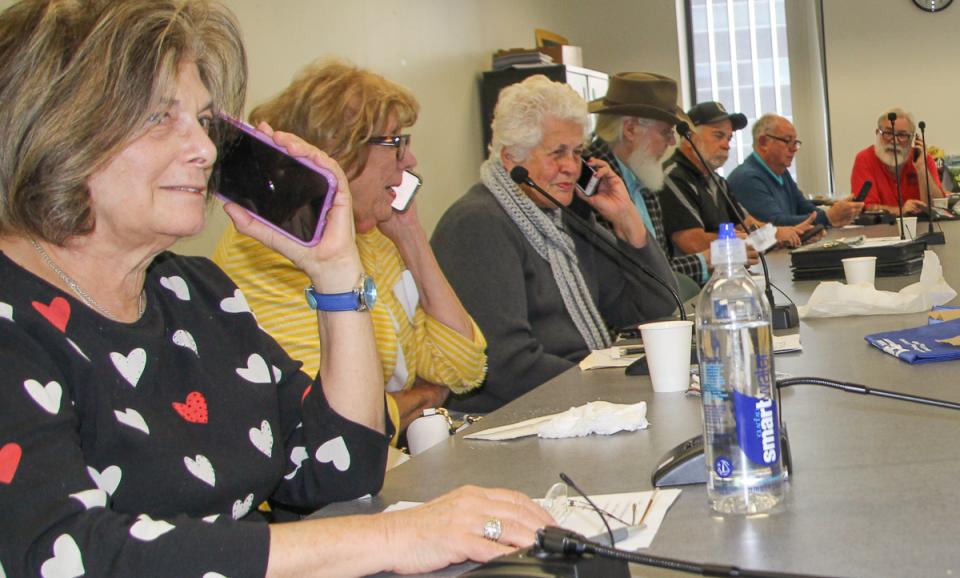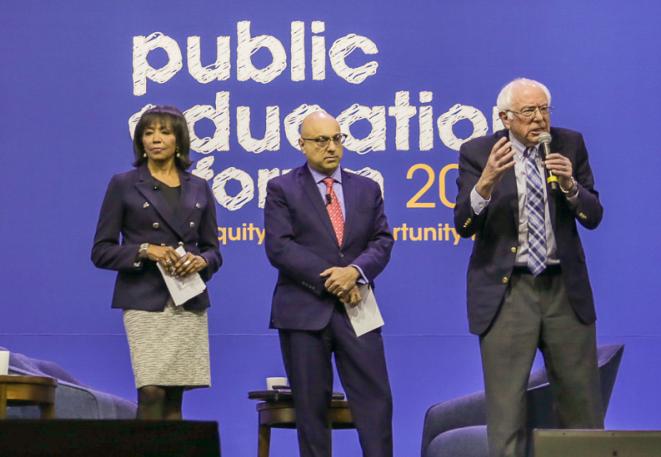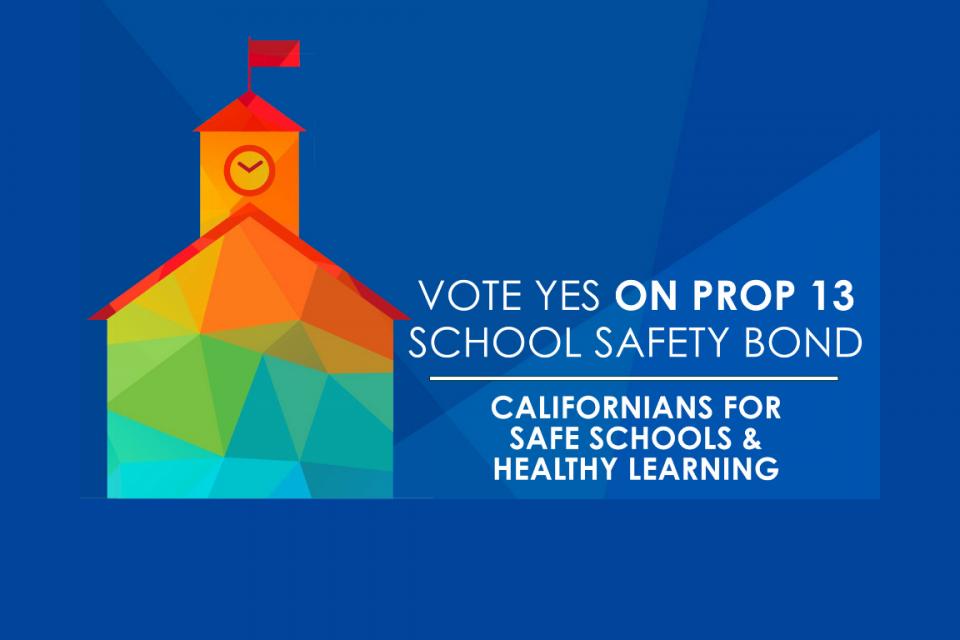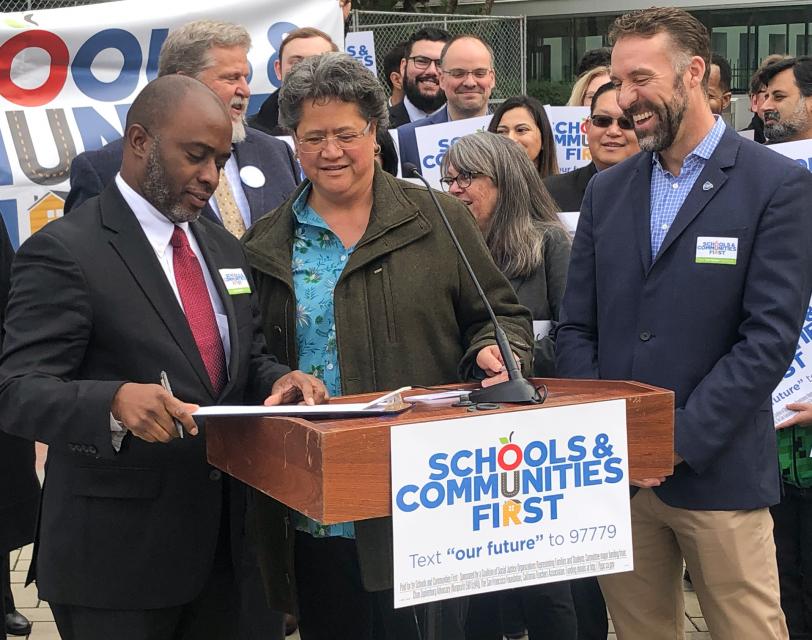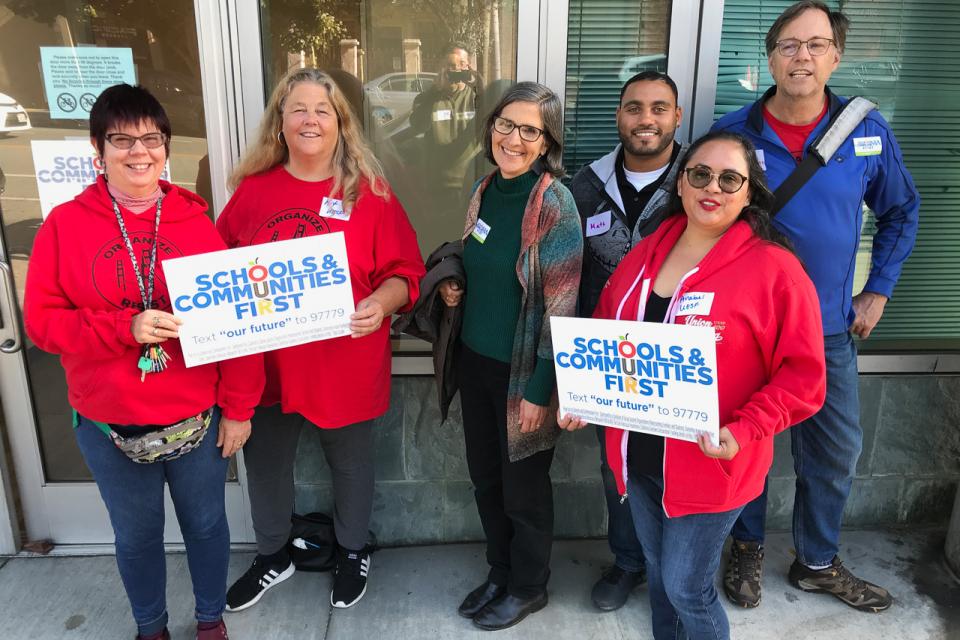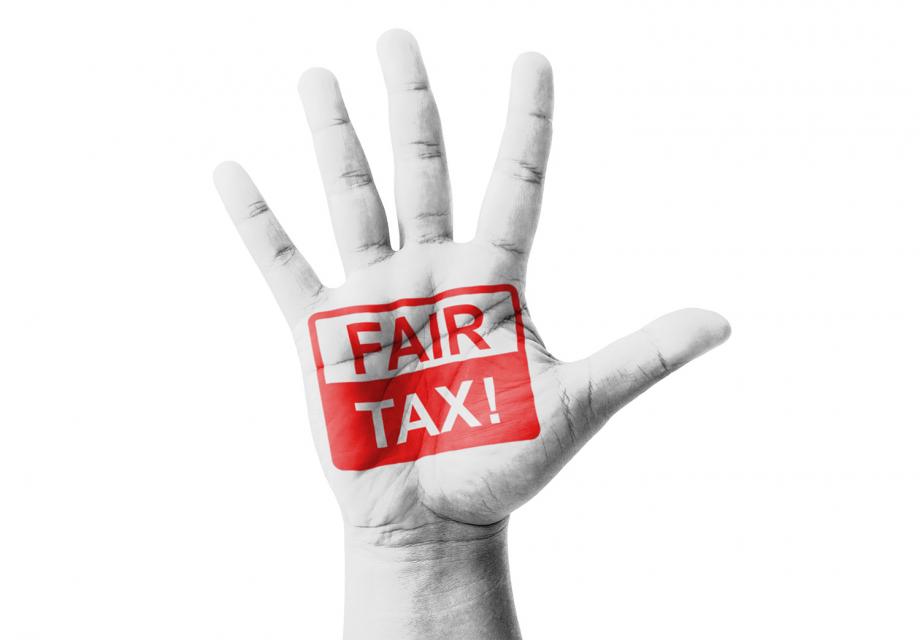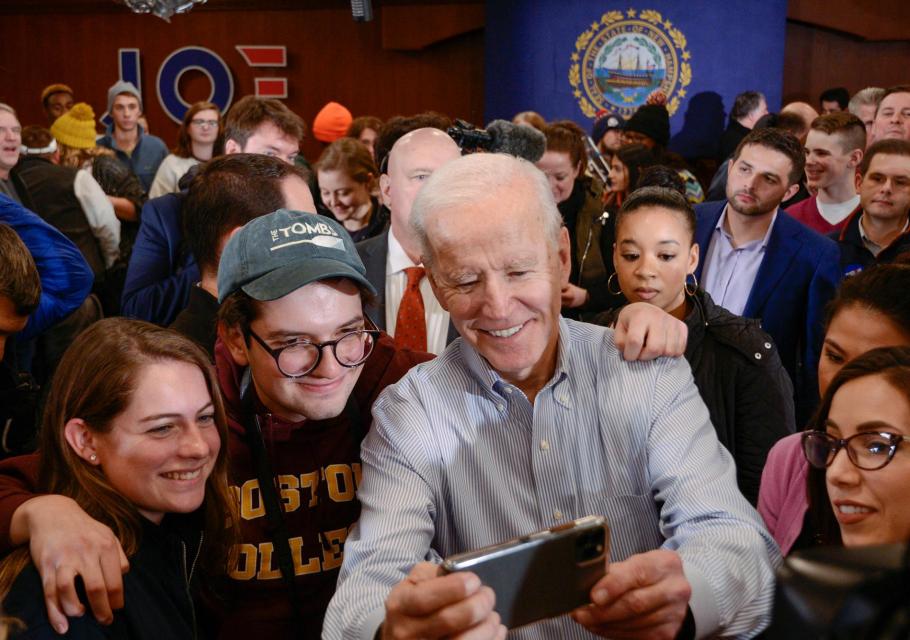A snapshot of Election 2020
The so-sweet national victory, mixed state results, and locals wins
On November 3, voters went to the polls to turn things around in our country and in our state. Or rather, many went to the polls, but many more had already cast mail ballots in the days and weeks leading up to the election, a sign of the times during a year of “stay at home” orders.
Paul da Silva became the candidate he wanted to see
First teacher elected to College of Marin Board of Trustees
For years, Paul da Silva, a biology teacher at the College of Marin and a member of United Professors of Marin, Local 1610, wondered about the lack of teachers on the college’s Board of Trustees and tried to talk retiring professors into running. No one took him up on it.
So when he decided in the summer of 2019 that he would retire, he concluded, to paraphrase Mahatma Gandhi, he’d have to be the candidate he wished to see in the world.
A First Lady who is a community college teacher
President-elect supports two years of free community college
Dr. Jill Biden, a community college teacher, union member, and soon to be First Lady, spoke virtually to members of the AFT and the National Education Association, thanking them for all the phone banking, text messaging, voter registration drives and poll work they did to get her husband, Joe Biden, elected. AFT President Randi Weingarten and NEA President Becky Pringle introduced her.
What I did to help win in Election 2020
Five retirees recount their extraordinary efforts
CFT retirees have broad-ranging interests and community relationships — and a lot of collective power. That is reflected in these five first-person accounts from very connected and active retirees.
Prop 15 defeated, but our coalition remains strong
CFT members worked so hard to put Proposition 15, also known as Schools & Communities First, on the November ballot and over the finish line right through the close of polling places on Election Day.
But after election day, Prop 15 was trailing by about 400,000 votes with approximately 4 million votes yet to be counted. CFT and campaign allies were optimistic and patient, holding out hope that the measure would amass the votes needed to pass.
Members brave public rallies to demand, “Count Every Vote!”
PHOTO GALLERY
The polls closed in Hawaii, the westernmost voting site in the United States, at 1 am eastern time on November 4. At 2:28, less than two hours later, President Trump sent out a tweet announcing that he’d won the election.
Millions of votes had yet to be counted, especially those cast by people voting early because of the coronavirus. But Trump demanded that counting stop, and made false charges of election rigging. He immediately filed suits in Pennsylvania, Michigan and Georgia to stop the count.
Top 5 reasons to vote NO on Prop 22
Make corporations pay their fair share!
Although there are many important races, Voting NO on Prop 22 is one of the most important decisions you can make on the ballot this year. Here’s why:
- Uber, Lyft and other giant gig corporations have spent $200 million on Prop 22 in an effort to exempt themselves from all labor laws that protect workers. We’re talking about basic protections like a minimum wage, sick leave, workers’ comp and unemployment insurance. These multi-billion dollar corporations are trying to strip workers of virtually every right we’ve fought decades to enact.
Prop 15: It’s not just about closing corporate tax loopholes
It’s about protecting adjunct faculty too!
California is at an educational crossroads made dire by the coronavirus pandemic, and Proposition 15 is an important step in getting California back on the right track.
COVID-19 has not only ravaged the health and lives of countless Californians — it has also ravaged state revenues, with Governor Newsom himself acknowledging overall state revenue declines being in the “tens of billions.”
California governor and major media endorse Prop 15
Corporate tax reform garners deserved support
As we inch closer to the General Election, Proposition 15, also known as School and Communities First, is gaining momentum amongst voters, in part boosted by a wave of critical endorsements.
Facing most difficult conditions in decades, unions meet the moment
Organizing for equity at work, home, and in communities
Strong organizing has meant workplace gains and more political power for faculty during the pandemic, with members showing up in larger than ever numbers to virtual bargaining sessions and meetings.
Retirees mobilize for most important election in their lives
The threat to our social norms is “mind boggling”
Every senior has a long personal view of U.S. history, but nearly all would agree that this presidential election will be the most important ballot they cast in their lives. The prospect of Donald Trump in the White House for four more years has ratcheted up emotions.
“The threat to our Constitution, to our institutions, and to our social norms is mind boggling,” said Dennis Cox of the CFT Council of Retired Members.
Yes on 15! Fix commercial tax system to help fund schools and colleges
Prop 15 will improve funding for public education
Over the past 40 years, disinvestment in public education has caused California to fall from one of the top states in per pupil spending to one that ranks near the bottom.
The California Schools & Local Communities Funding Act would raise up to an estimated $12 billion every year for schools and local communities by ending the unfair system that allows a fraction of the wealthiest commercial and industrial property owners to avoid paying their fair share in taxes.
Fixing commercial tax system will help communities prepare for wildfires
Prop 15 will fund local fire protection districts
As a result of our rapidly changing climate, California has experienced the deadliest, largest, and most destructive wildfires in its history.
In the past five years, we’ve had nine of the 20 most destructive fires the state has ever had, including the Camp Fire in Butte in 2018, the Tubbs Fire in Napa and Sonoma in 2017, the Carr Fire in Shasta & Trinity in 2018, and the Thomas Fire in Santa Barbara and Ventura in 2017.
Governor Newsom endorses Prop 15!
Joe Biden endorsed Schools & Communities First last fall
On September 11, Governor Newsom endorsed Prop 15, the CFT-supported ballot measure that will reclaim $12 billion annually for California schools and communities by closing corporate property tax loopholes.
“The governor’s support of Prop 15 is critical to ensure that this essential initiative passes and our schools have the resources they need so that our students receive the education they deserve,” said CFT President Jeff Freitas.
Why your vote for Prop 15 is essential!
FAQ: What Prop 15 will do
Proposition 15 is a fair and balanced reform that will reclaim $12 billion to invest in schools and vital services for our local communities.
When Prop 15 passes, it will close a loophole that large corporations have used for decades to avoid paying their fair share of property taxes. The richest 10% of corporate properties will provide 92% of the new revenue.
AFT Convention delegates endorse Joe Biden for president
The nearly 4,000 delegates at the AFT Virtual Convention endorsed Joe Biden for president in the general election, with 90 percent voting in favor.
The decision by the AFT follows the most inclusive and extensive presidential endorsement process in the union’s history, conducted over many months and involving more than 300,000 AFT members, that ultimately led the AFT Executive Council to submit the endorsement.
Schools & Communities First placed on ballot as Prop 15
Yes on Proposition 15 this November!
On July 1, California Secretary of State Alex Padilla announced the 12 measures that have qualified for the November election, along with their ballot numbers. Schools and Communities First, the CFT’s top statewide priority in November, will appear as Proposition 15.
Members collect 20,000 signatures in support of Schools & Communities First
Hitting statewide goal helped land measure on November 3 ballot
Update: On June 4, Schools and Communities First officially qualified for the November 3 General Election ballot.
Last fall, when CFT began circulating petitions to qualify the Schools and Communities First initiative, seems like a world away. Yet on April 1, the early days of the coronavirus outbreak, the coalition submitted 1.7 million signatures, nearly twice the number needed to put the measure on the November ballot and the most ever gathered in California history.
California Primary Election yields big wins, and some losses
Many races too close to call
Across the state CFT local unions supported a variety of candidates, parcel taxes, and bonds in their local communities. With many votes still to be counted, results for many of the races are yet to be determined.
There is some good news to report coming from local unions.
The CFT campaign to Fund our Future
By Jeffery M. Freitas, CFT President
In 2011, the CFT worked with community partners to lead the charge for a Millionaires Tax that eventually turned into Prop 30 and was then extended by Prop 55. Those funds helped stop the bleeding in K-14 education following the recession and drastic funding cuts of the mid-2000s.
Now, however, there are pressures throughout our school districts and community colleges that are preventing CFT members from getting the pay, benefits, program funding, and staffing levels our schools, colleges, and communities desperately need.
Retirees are leaving their mark on 2020 elections
Seniors work on local and statewide measures
For more than four decades, California corporations have evaded their fair share of commercial property taxes, leaving our schools with some of the most overcrowded classrooms and worst ratios of students to counselors, librarians, and nurses in the nation.
Schools and Communities First will close those property tax loopholes in 1978’s Proposition 13 — without affecting homeowners or renters — and channel more than $12 billion per year to local schools, community colleges and other vital services.
CFT members participate in Presidential Public Education Forum
Educators travel across the country to meet candidates in person
As we knew it would be, the lead-up to the 2020 Presidential Election is both an exciting and overwhelming time for voters. We are bombarded with articles, polls, social media, and headlines about the candidates.
Amid all the hype, it isn’t often that CFT members get the opportunity to see the presidential candidates in person and hear their perspectives on the issues we think about every day.
Vote YES on Prop. 13, the California school safety bond
$15 billion for new facilities and modernization
Proposition 13, the School Safety Bond, will appear on the March 2020 California ballot. The initiative, which bears no relation to Prop. 13 from 1978, is the largest school facilities bond in state history, promoting adequate and equitable school facilities that will provide healthy, safe, and educationally appropriate school infrastructure for our children.
Tony Thurmond endorses Schools & Communities First
State superintendent of schools signs to qualify the ballot initiative
California State Superintendent of Public Instruction Tony Thurmond formally endorsed the Schools and Communities First initiative on January 28 before a crowd of educators, support staff, parents, and students on the south steps of the State Capitol .
Put Schools and Communities First on the ballot
Join CFT members in gathering signatures
The California Schools and Local Communities Funding Act will restore over $12 billion per year to California’s schools, community colleges, health clinics, and other vital local services.
For nearly four decades, big corporations have not been paying their fair share of commercial property taxes, leaving California with the most overcrowded classrooms in the United States and with some of the worst ratios of counselors, librarians, and nurses per student.
Improved corporate tax reform initiative refiled with state
CFT working with coalition to put funding measure on the 2020 ballot
This week, the Schools & Communities First campaign refiled the the split roll ballot initiative with significant improvements. The refiling is a result of organizing during 2018 that allowed the campaign to hear feedback from stakeholders across the state on the ballot measure, and to consult with California’s leading policy and legal experts. CFT is a key member of the campaign coalition.
AFT endorses Biden for U.S. president
CFT survey results and AFT election resources
On March 22, AFT endorsed Joe Biden for U.S. President after more than a year of member engagement on the endorsement process — with more than 300,000 AFT members nationwide participating in candidate events, town halls, polls, regional conferences and other efforts — new membership polls show strong support for Biden.
In November, CFT members will join voters around the country to cast their ballots for the next president of the United States. While we know that every election day is an important one, the upcoming election will represent an historic turning point for our country.
We not only have the opportunity to elect a president who understands the value of public education, but one who will stand up for the rights of working people.

